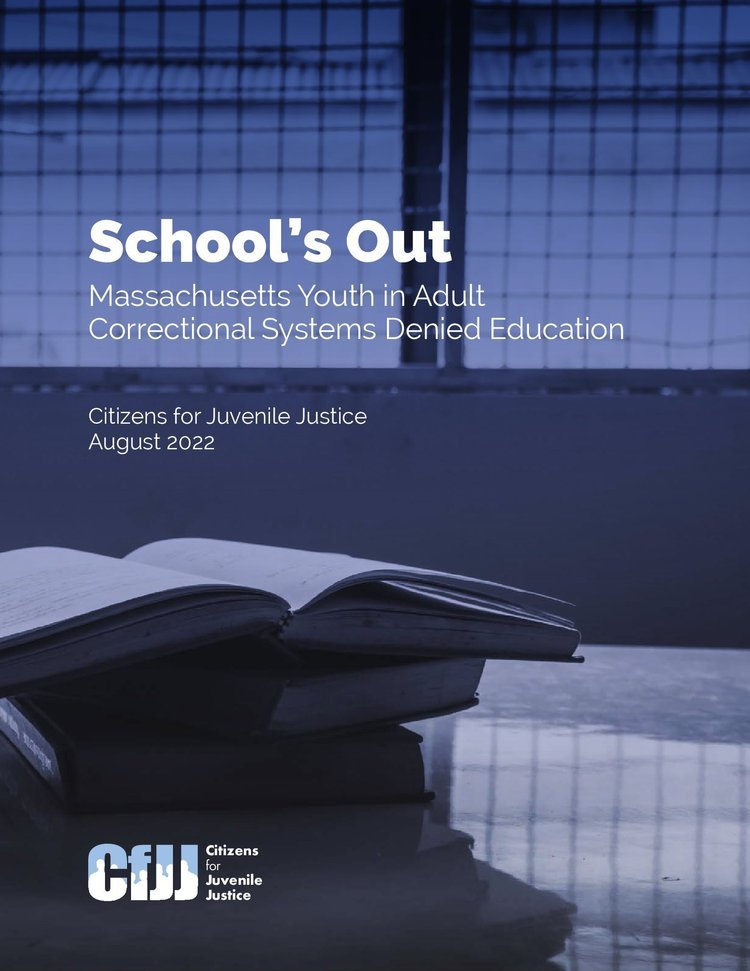Emerging Adult Justice Reform
Improving community safety. Advancing Positive outcomes for transition-age youth and emerging adults.
Guiding the development of justice-involved youth aged 18-25 as they transition into adulthood will help them desist from crime. Young people’s problematic behavior peaks at age 18 and 19. It is imperative that we recognize that successfully reducing recidivism is directly tied to young people’s ability to meet key youth developmental milestones. Our recommendations are based on that framework and are, broadly stated, as follows:
Gradually raise the age of juvenile jurisdiction to incorporate 18-, then 19-, then 20-year-old youth over a five year period to allow the system to adjust programmatically to this older adolescent population;
Infuse developmentally-appropriate, evidence-informed policies modeled after Massachusetts’ juvenile justice system into the adult correctional agencies to ensure positive outcomes for all incarcerated young adults through their mid-twenties, by requiring educational programming; family engagement; incorporating Positive Youth Development principles; and prohibiting harmful practices including solitary confinement and discrimination against LGBTQIA prisoners.
Massachusetts currently spends the most money on young adults in the justice system but gets the worst outcomes. Emerging adults make up 10% of the state population, but represent more than 29% of arrests, 23% of Houses of Correction commitments and 20% of Department of Correction commitments. The Council on State Governments identified justice-involved emerging adults as a key population for reform, with the highest recidivism rate in the Commonwealth: in 2011, 76% of emerging adults released from Houses of Correction were brought back to court within 3 years. Young adults are over-represented in our criminal justice system, and young adults of color are most disproportionally impacted.
The young adult brain is still developing, making them highly amenable to rehabilitation. This development is highly influenced – positively or negatively – by their environment. Massachusetts already recognized emerging adults as a distinct population: our child welfare, healthcare, education, labor and other agencies have all created dedicated policies and programs to support young adults' transition to independent adulthood. Developmentally, young adults are more prone to risk-taking and heavily influenced by their environments. Research also finds that for those engaging in criminal behavior, the vast majority "age out" of offending by their mid-twenties, particularly with developmentally appropriate interventions. Overly punitive approaches with young adults have been shown to extend involvement in the criminal justice system and slow desistance from crime. Exposure to toxic environments, like adult jails and prisons, entrenches young adults in problematic behaviors, increasing the probability of recidivism.
Raise the Age
Raising the age to 18 worked. In 2013, Massachusetts raised the age of adult criminal jurisdiction from 17 to 18, and since then, juvenile crime has declined by 51%. The number of youth in juvenile facilities is also on the decline. A Justice Policy Institute report highlighted Massachusetts' success with raising the age through improving community-based responses and using cost-effective and developmentally appropriate approaches. Now, proposed reforms aim to build on that success.
Support for Massachusetts' campaign to raise the age to 21 has been highlighted in local media and support has been growing among former judges, the Celtics, the New England Patriots, and many more.
Celtics players, coaches and staff coming together with advocates and young men who may have come from the same environments at the #PlayforJustice event to discuss #RaisetheAge in Massachusetts.
Practices and Policies
Ensure positive outcomes for all incarcerated young adults through their mid-twenties, by requiring:
Educational programming,
Family engagement,
Incorporating Positive Youth Development principles,
And prohibiting harmful practices including solitary confinement and discrimination against LGBTQIA prisoners.
CfJJ’s “School’s Out: Massachusetts Youth in Adult Correctional Systems Denied Education” report provides a comparative overview of educational approaches and outcomes in the adult and juvenile systems for incarcerated young people aged 18–21 in Massachusetts, with a focus on special education. Educating incarcerated youth benefits society in multiple ways and is not only legally mandated but is the right thing to do from a moral, fiscal, and community safety perspective.
Take action by ensuring educational rights are upheld for incarcerated youth this legislative session. Despite the role of education in lowering recidivism and helping young people reach their highest potential, only a small fraction of youth aged 18-21 with IEPs receive the special education services. Further, DOC's waiting list for educational programming is over 3,000 people long.
The following reports call for re-envisioning how our justice system responds to young adults using the developmental lens:
White Paper on the Science of Late Adolescence: A Guide for Judges, Attorneys, and Policy Makers
Report of the Task Force on Emerging Adults in the Criminal Justice System
Emerging Adults: A distinct population that calls for an age-appropriate approach by the justice system. Selen Siringil Perker and Lael Chester.
Harvard Kennedy School Program in Criminal Justice Policy & Management / National Institute of Justice, Community-Based Responses to Justice Involved Young Adults
National Institute of Justice / Office of Juvenile Justice and Delinquency Prevention, What Happens and What Should Happen
National Institute of Justice: Environmental Scan of Developmentally Appropriate Criminal Justice Responses to Justice-Involved Young Adults
MassINC: Viewing Justice Reinvestment Through a Developmental Lens



